Monday 4 August 2008
The next step for international trade
Reading a farm blog from Eastern Africa has focussed my mind once more on the importance of the breakdown of the Doha round, which I have been following on this blog.
Here's an editorial from the NYT:
The next step for international trade
The battle lines of the new world order were exposed at the World Trade Organization last week. The breakdown of the Doha round of trade negotiations over a clash between the United States and China and India about farm protections underscored how these new economic giants are changing the balance of power.
The collapse of the seven-year effort to further reduce trade barriers is regrettable, not least because it aimed to increase the access of the poorest countries to rich-country markets. But it lays the groundwork to develop a better way to discuss global trade.
Perhaps it was inevitable that the Doha round, as the talks are known, would fail. With a narrow agenda centered on giving market access to poor countries, little incentive was offered to the leading trading nations to compromise. The talks were left behind by the real world, as many developing countries unilaterally reduced trade barriers below their legal commitments and farm subsidies in rich countries fell automatically as food prices rose.
While the failure does not mean disaster for world trade, there is a risk that it could undermine faith in the rule-based multilateral trading system. Already, the enormous subsidies that are allowed in the U.S. farm bill this year suggest that Washington is backsliding from its goal of freer farm trade. As the Doha round of talks limped along for seven years, the United States and other countries rushed to sign preferential trade agreements on the sly, potentially snagging world trade in a spaghetti bowl of competing deals.
It will not be simple to recapture the momentum lost in the Doha talks. At the very least, substantive discussion about trade will need to wait until the next American administration. But the world's powers might make use of the hiatus to reflect on how best to build on the system of policy coordination that guides world trade.
A strong WTO will be needed to arbiter trade disputes as the world economy slows and protectionist urges simmer. But the WTO needs a broader agenda to get stakeholders interested in more open trading.
The Doha talks did not do much for anybody, not even for the least-developed countries. Granting them concessions like duty-free access on 97 percent of their products sounded great - except most of the tariffs levied on poor country exports are aimed at that 3 percent.
Much future negotiating must occur between developing countries, who account for the bulk of existing trade barriers. These days, industrialists in India mostly want protection against imports from China, not the United States. Perhaps the biggest loser from India's and China's resistance to lower farm tariffs was the agricultural powerhouse Brazil. The North-South frame of the Doha negotiations ignored these cleavages.
The agenda could also be broadened in other ways to incorporate the interests of the big new players. Bringing services - including those involving the movement of people - more fully under the roof of the WTO would provide an enormous incentive for India, a large services exporter. Issues like rules covering the inspection of cargo at ports are likely to become more important as countries deal with national security concerns.
The notion of the grand negotiating trade round involving all WTO members might have to be replaced by more manageable formats. The opening of trade in services, for instance, might be hammered out by smaller groups of exporters. Other countries could accede to the deal if they wanted. This approach might help the WTO address the challenge of global warming, to bring everything from carbon trading to potential trade retaliation for emissions of greenhouse gases under its rules.
The WTO is perhaps the only institution of policy coordination capable of imposing discipline on its members. One of its challenges will be to devise rules to cope with the dynamics of globalization and global warming and to manage the rise of a set of new world powers.
http://www.iht.com/articles/2008/08/03/opinion/edtrade.php
www.aplaceintheauvergne.blogspot.com
Farm Blogs
Here's an editorial from the NYT:
The next step for international trade
The battle lines of the new world order were exposed at the World Trade Organization last week. The breakdown of the Doha round of trade negotiations over a clash between the United States and China and India about farm protections underscored how these new economic giants are changing the balance of power.
The collapse of the seven-year effort to further reduce trade barriers is regrettable, not least because it aimed to increase the access of the poorest countries to rich-country markets. But it lays the groundwork to develop a better way to discuss global trade.
Perhaps it was inevitable that the Doha round, as the talks are known, would fail. With a narrow agenda centered on giving market access to poor countries, little incentive was offered to the leading trading nations to compromise. The talks were left behind by the real world, as many developing countries unilaterally reduced trade barriers below their legal commitments and farm subsidies in rich countries fell automatically as food prices rose.
While the failure does not mean disaster for world trade, there is a risk that it could undermine faith in the rule-based multilateral trading system. Already, the enormous subsidies that are allowed in the U.S. farm bill this year suggest that Washington is backsliding from its goal of freer farm trade. As the Doha round of talks limped along for seven years, the United States and other countries rushed to sign preferential trade agreements on the sly, potentially snagging world trade in a spaghetti bowl of competing deals.
It will not be simple to recapture the momentum lost in the Doha talks. At the very least, substantive discussion about trade will need to wait until the next American administration. But the world's powers might make use of the hiatus to reflect on how best to build on the system of policy coordination that guides world trade.
A strong WTO will be needed to arbiter trade disputes as the world economy slows and protectionist urges simmer. But the WTO needs a broader agenda to get stakeholders interested in more open trading.
The Doha talks did not do much for anybody, not even for the least-developed countries. Granting them concessions like duty-free access on 97 percent of their products sounded great - except most of the tariffs levied on poor country exports are aimed at that 3 percent.
Much future negotiating must occur between developing countries, who account for the bulk of existing trade barriers. These days, industrialists in India mostly want protection against imports from China, not the United States. Perhaps the biggest loser from India's and China's resistance to lower farm tariffs was the agricultural powerhouse Brazil. The North-South frame of the Doha negotiations ignored these cleavages.
The agenda could also be broadened in other ways to incorporate the interests of the big new players. Bringing services - including those involving the movement of people - more fully under the roof of the WTO would provide an enormous incentive for India, a large services exporter. Issues like rules covering the inspection of cargo at ports are likely to become more important as countries deal with national security concerns.
The notion of the grand negotiating trade round involving all WTO members might have to be replaced by more manageable formats. The opening of trade in services, for instance, might be hammered out by smaller groups of exporters. Other countries could accede to the deal if they wanted. This approach might help the WTO address the challenge of global warming, to bring everything from carbon trading to potential trade retaliation for emissions of greenhouse gases under its rules.
The WTO is perhaps the only institution of policy coordination capable of imposing discipline on its members. One of its challenges will be to devise rules to cope with the dynamics of globalization and global warming and to manage the rise of a set of new world powers.
http://www.iht.com/articles/2008/08/03/opinion/edtrade.php
www.aplaceintheauvergne.blogspot.com
Farm Blogs
Subscribe to:
Post Comments (Atom)







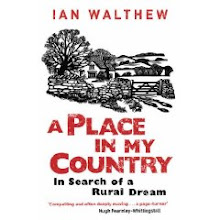


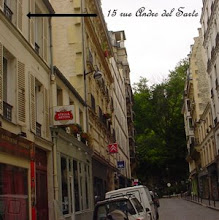
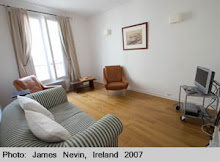

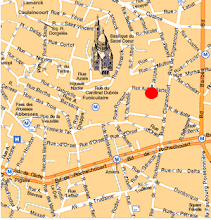



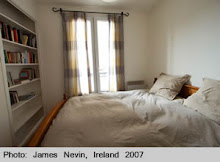



No comments:
Post a Comment